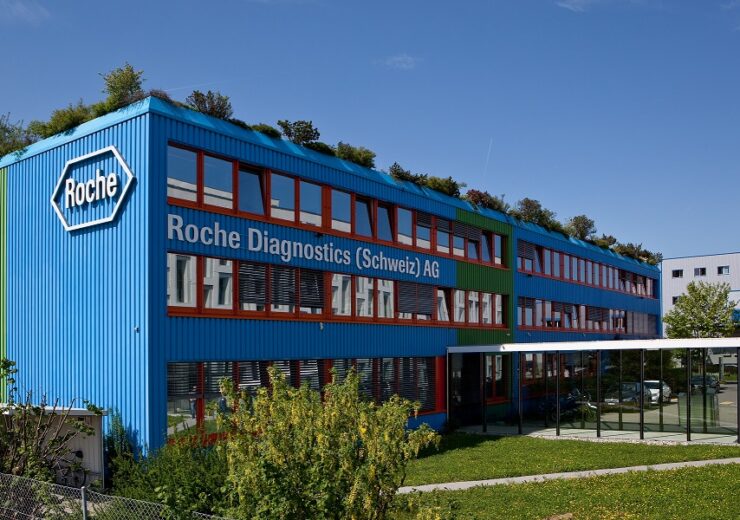The partnership is expected to facilitate precise diagnosis, improved clinical decision-making and enable more personalised treatment strategies

Roche will integrate algorithm developed by its partner PathAI. (Credit: F. Hoffmann-La Roche Ltd)
Roche has teamed up with Bristol Myers Squibb to advance two of its assays intended for use in clinical trials by developing and deploying two new digital pathology algorithms.
In the first project under the collaboration, the company’s business unit Roche Digital Pathology will create an AI-based image analysis algorithm.
The algorithm would help pathologists in interpreting the VENTANA PD-L1 (SP142) Assay.
Bristol Myers Squibb will use the AI-powered algorithm developed under the collaboration to generate biomarker data using clinical trial samples.
In the second project, the Swiss health-tech company will use its recently unveiled Open Environment collaboration with AI-powered pathology company PathAI.
Roche will integrate a PathAI-developed algorithm for CD8 biomarker analysis into its NAVIFY Digital Pathology workflow software.
Bristol Myers will use the AI-powered algorithm to analyse clinical trial samples stained with Roche’s CD8 assay and produce quantitative spatial biomarker data.
Through data generated from both projects, the collaboration is expected to support cancer diagnosis and advance personalised healthcare.
Also, the partnership is expected to deliver a precise diagnosis, improved clinical decision-making and enable more personalised treatment strategies.
Bristol Myers Squibb translational sciences and diagnostics vice president Sarah Hersey said: “We believe digital methods will bring significant improvements in standardisation and interpretation of tissue-based assays and will enable broader access to tissue-based assays.
“The ability to more deeply interrogate images will present opportunities to better understand disease biology, potentially leading to expanded and improved drug development options and ultimately highly effective patient selection strategies.
“We are pleased to be part of this collaboration that is using leading-edge technology to enable improved patient outcomes.”
In a separate development, Bristol-Myers Squibb announced that the Japanese Ministry of Health, Labour and Welfare (MHLW) has accepted its supplemental New Drug Application for Breyanzi (lisocabtagenemaraleucel) to treat a type of large B-cell lymphoma (LBCL).
Breyanzi is a CD19-directed chimeric antigen receptor (CAR) T cell therapy, indicated for the second-line treatment of patients with relapsed or refractory (R/R) LBCL.
The Japanese health agency has accepted the application based on positive efficacy and safety data from the TRANSFORM study, conducted in Japan, the US and the EU, along with other studies.
